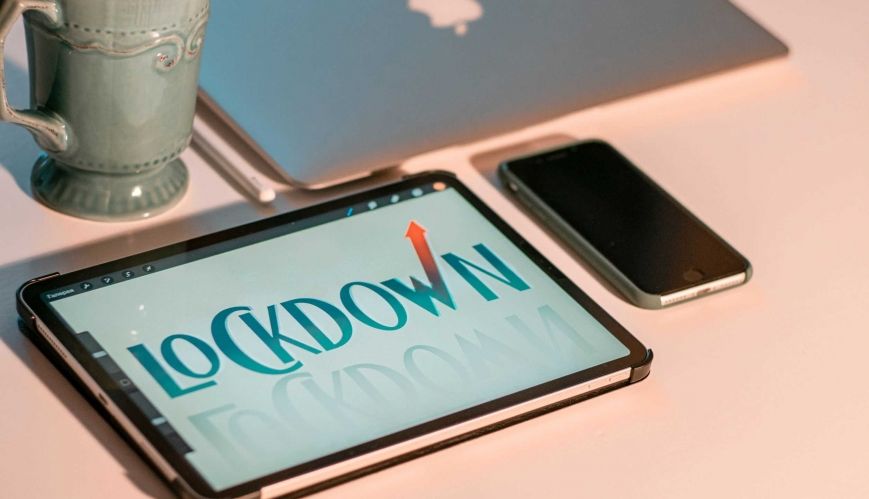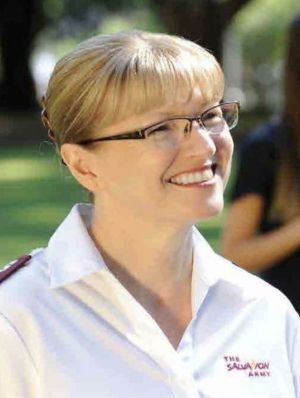Coping with COVID-19

Coping with COVID-19
20 September 2021
Image: Elena Mozhvilo on Unsplash
Major ROBYN SMARTT is clinical manager, pastoral services for The Salvation Army Australia. Robyn talks about the impact of the COVID-19 pandemic and strategies that can help us get through and build resilience in body, mind and soul.
We have been living with COVID-19 for more than 18 months now. What impacts are you seeing this have on people?
The reality people are facing is dependent on where they live in Australia, what they’re used to, their level of understanding of what it all means, and their personal circumstances. For many, their past frames of reference and coping strategies aren’t working anymore.
 Major Robyn Smartt: “We need to look after ourselves and others in body, mind and spirit.”
Major Robyn Smartt: “We need to look after ourselves and others in body, mind and spirit.”
Depending on how we live life, some of us are facing this as we would any new problem to solve, especially as the Delta strain of the coronavirus takes hold. Others of us are looking for peace and stability. We are asking ourselves what is normal. Levels of anxiety, sadness, grief and anger are growing. Stress responses are heightened and energy levels are decreasing. Sleep patterns are being disturbed. People are worried, feeling heavy. The media is using words like ‘malaise’ to describe what is happening, which seems sadly accurate. Cancelled or interrupted holiday plans, and the inability to plan future trips, is preventing people from getting the circuit breakers of holidays that they can normally rely on.
People are increasingly feeling isolated, whether they’re in a crowded house or living alone. Screen time for adults and kids has gone up. We can’t get into a rhythm. Everything we were accustomed to, even throughout the pandemic, looking after ourselves in body, mind and spirit is changing. The risks are higher, advice changes, we have more questions and more concerns. It seems to be going on and on and we can’t get back into a ‘normal’ life pattern.
What can people do to get through?
We need to be looking after ourselves and others in body, mind and spirit. This can include:
- Choosing to be active, getting out in the fresh air and sunshine, eating healthy food and staying hydrated. Watching our diet and not adding too many ‘COVID kilos’ to our weight. Enjoying screen time but keeping limits on it as well.
- If we’re working from home, developing strategies such as routine, a well-lit work area, changing out of our pyjamas, and setting start and finish times, as well as regular breaks. It’s also important to stay in touch with colleagues and our line manager.
- If we have children, it’s making sure they have regular breaks, establishing a routine and finding ways to be flexible. Sourcing reliable news and limiting media and social media exposure.
- Trying to keep a healthy perspective and not constantly imagining the worst.
- Not underestimating our inner strength, resources and coping mechanisms.
- Asking and applying what good self-care means for each person.
- Recognising and naming our feelings, without judging ourselves or others.
- Looking for the positive in each day.
- Being kind to ourselves and others.
- Staying connected to family, friends and those in our networks.
- Writing notes or sending gifts in the mail, reading a novel, having a board games night, listening to music from the past, setting challenges, being creative.
- Organising an activity to do with others online or joining an established ‘online dinner club’ or community connect group.
- Integrating regular times of mindfulness and prayer into each day to keep grounded.
- Sharing what we are grateful for and why, to help reduce anxiety and depression.
- Seeking help when you need it and knowing you don’t need to go through this alone.
We can also find God’s peace in all of this, as difficult as that may sound. In the Bible, in 1 Kings chapter 19, we read about the prophet Elijah who, at one stage in his life, felt desperate and threatened and ran away. It was a self-imposed isolation, but God didn’t judge him. The first thing God did was provide for Elijah’s physical needs with food and rest.
Elijah expected to find God in the same way he had shown up in the past – in the earthquake, wind or fire – but God showed up in a different and unexpected way. He cared for Elijah’s immediate needs, helped him realise he wasn’t alone, and gave him some practical things to do.
You are not alone in your struggles either. There are people you can connect with who want to help you. In Philippians chapter 4, verses 6-7, God tells us to bring everything to him in prayer and not to be anxious about anything. Instead, talk to God about everything and he promises a peace that we cannot understand as he keeps us anchored in Jesus.
Let’s also be open to experiencing God’s peace in the middle of lockdown, isolation and uncertainty. Let’s look for God and notice him where he shows up. If you’re interested in learning about building resilience, check out Hugh van Cuylenburg’s Resilience Project in Melbourne at theresilienceproject.com.au/
HELP IS AT HAND
• Lifeline 13 11 14
• Kids Helpline 1800 551 800
• MensLine Australia 1300 789 978
• Suicide Call Back Service 1300 659 467
• Beyond Blue 1300 224 636 or its COVID-19 support service 1800 513 348
• Headspace 1800 650 890
• ReachOut at au.reachout.com
• Care Leavers Australasia Network (CLAN) 1800 008 774
• Brother to Brother 1800 435 799